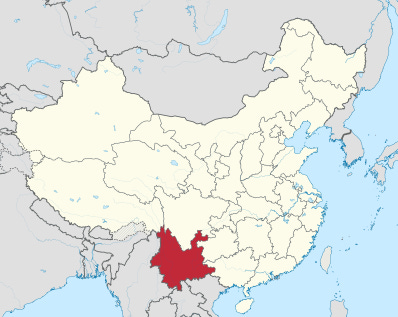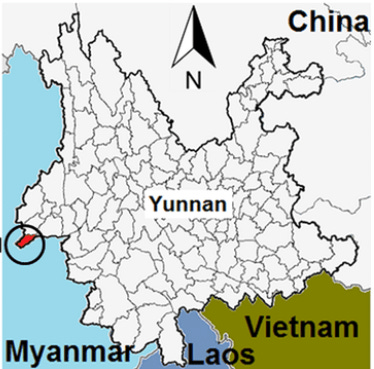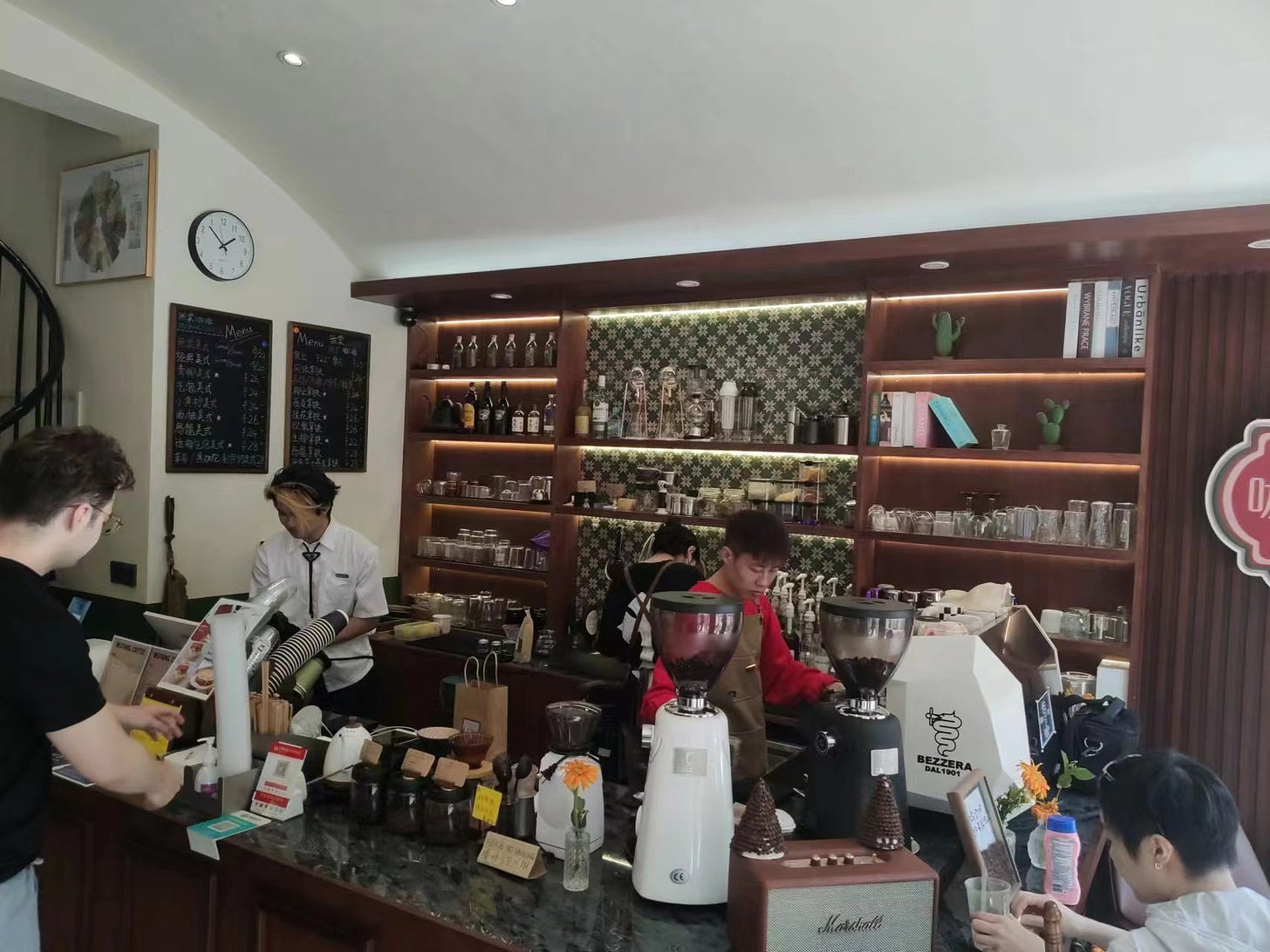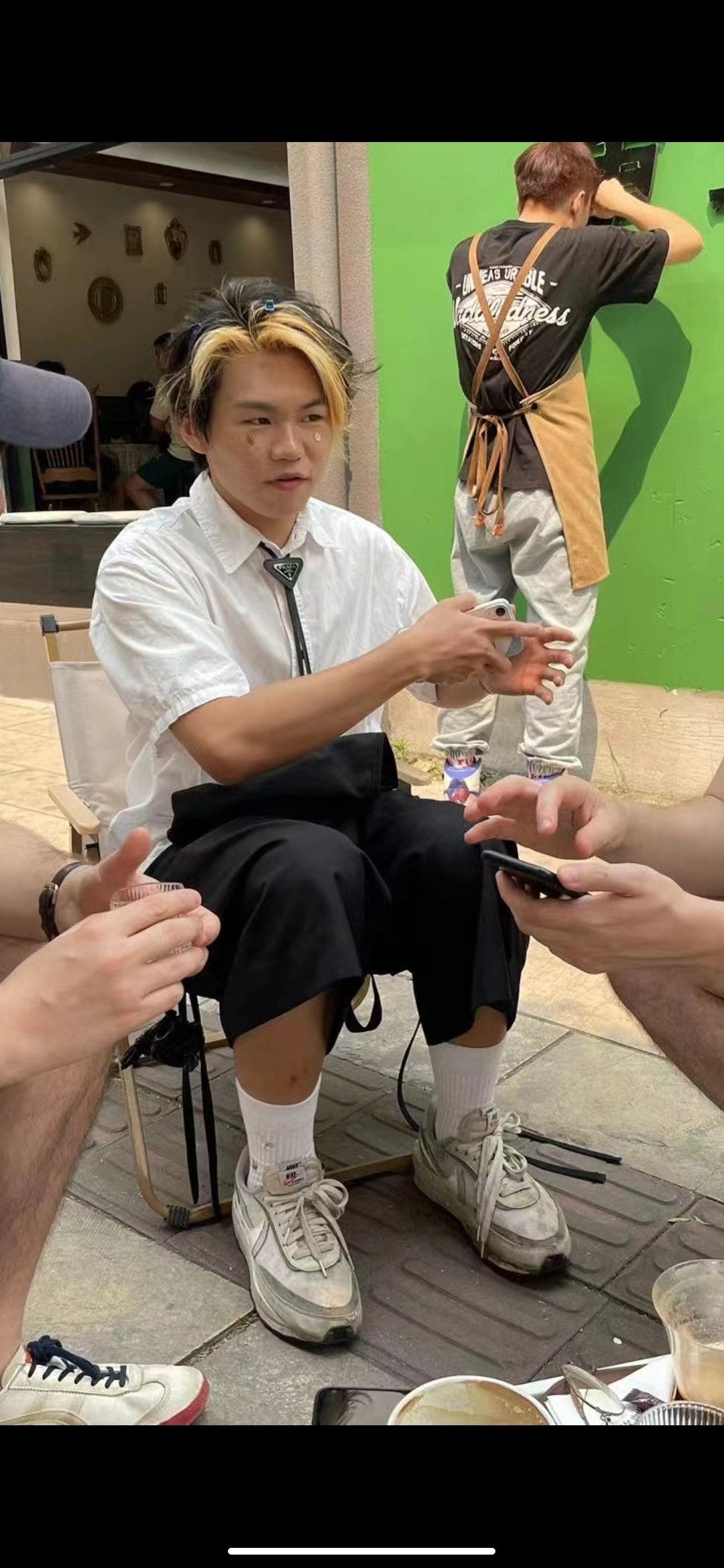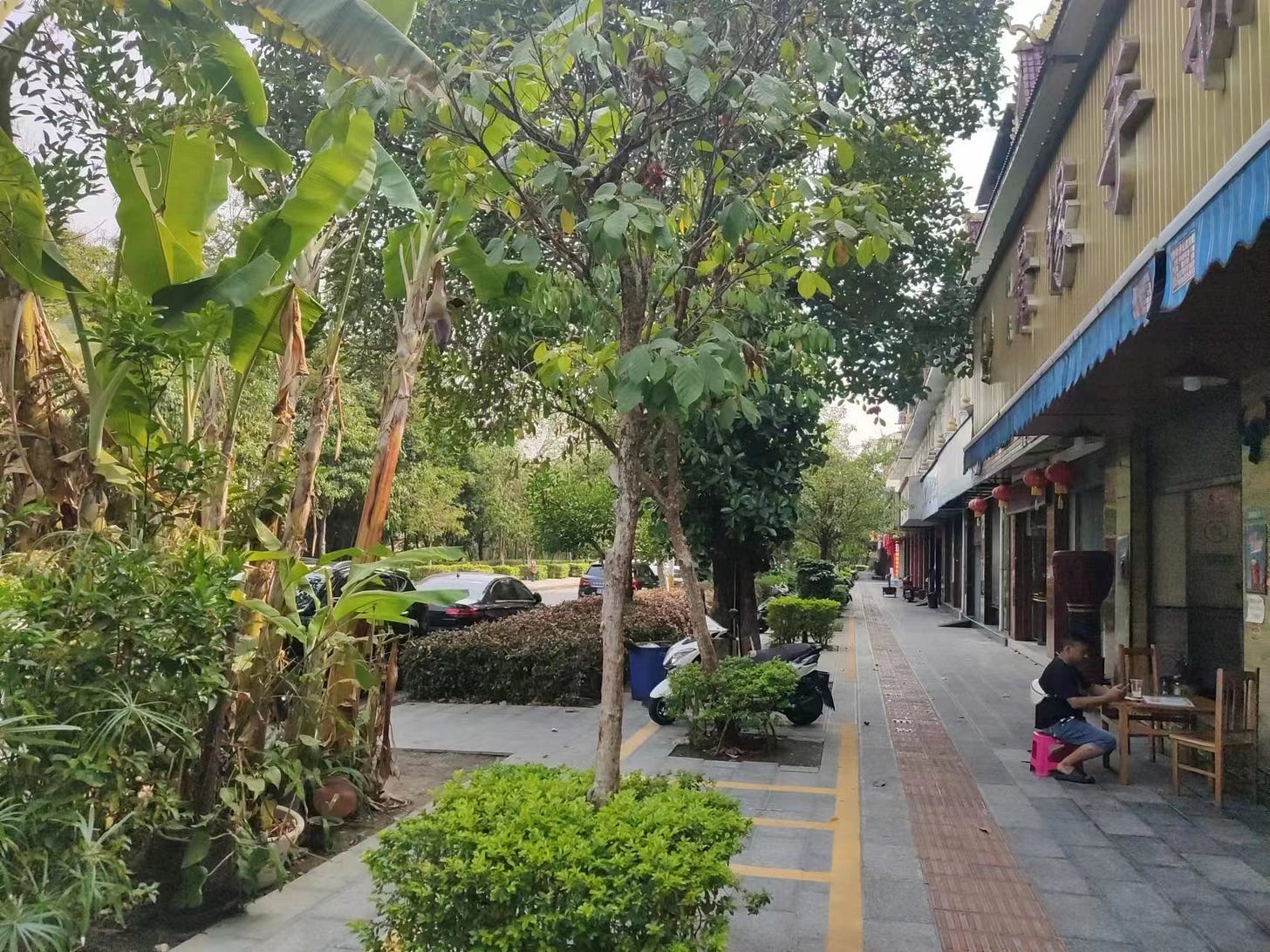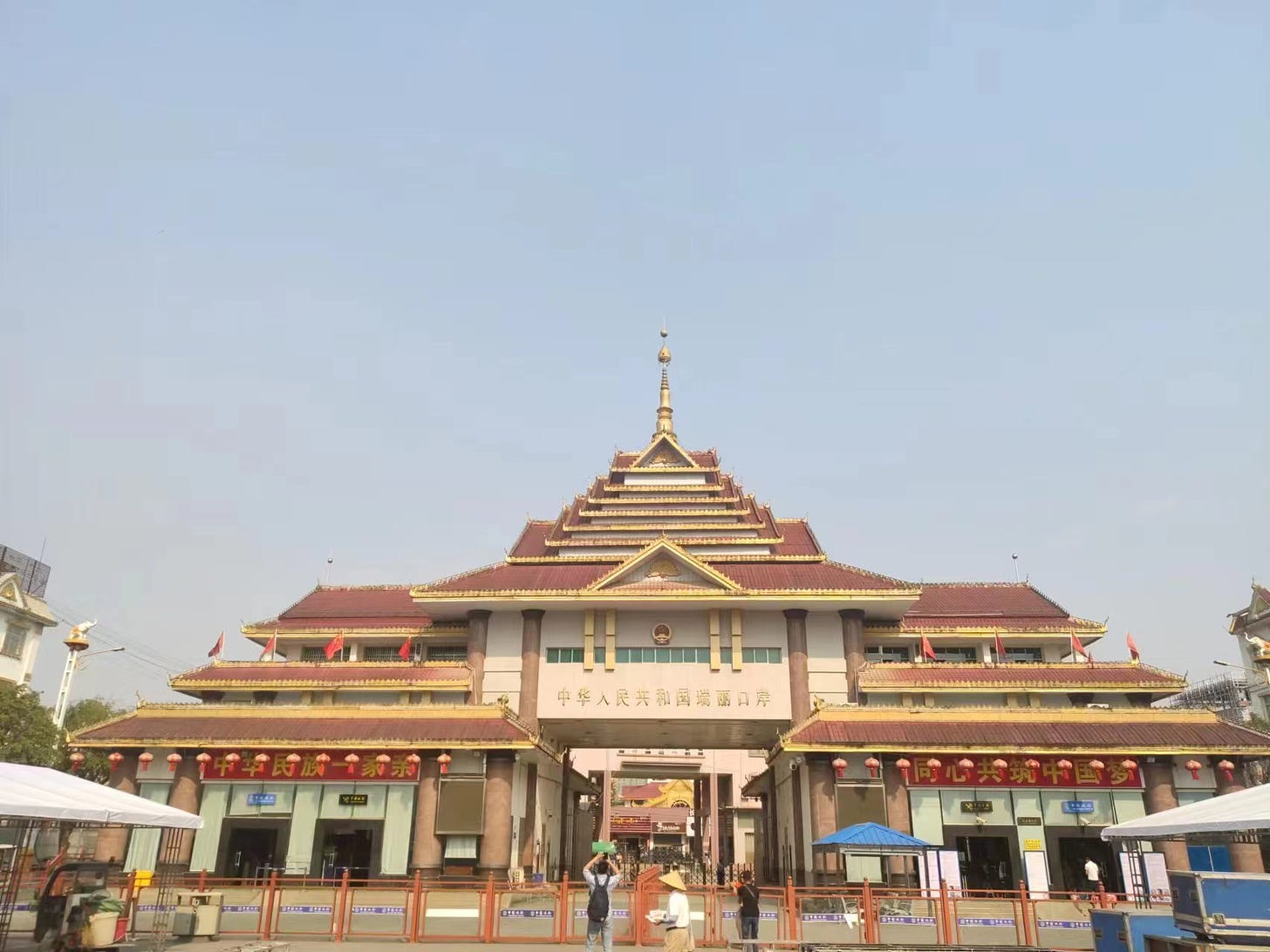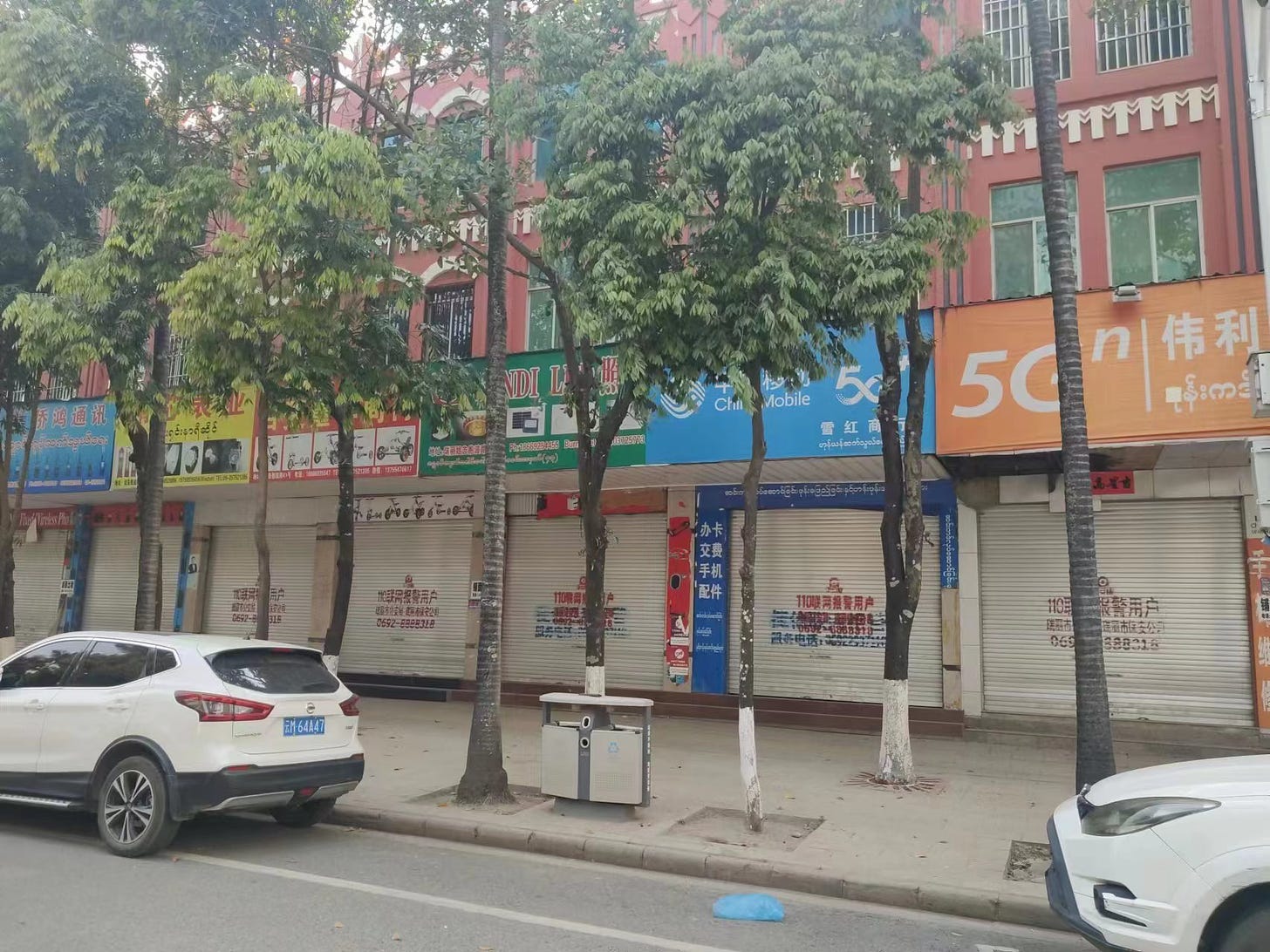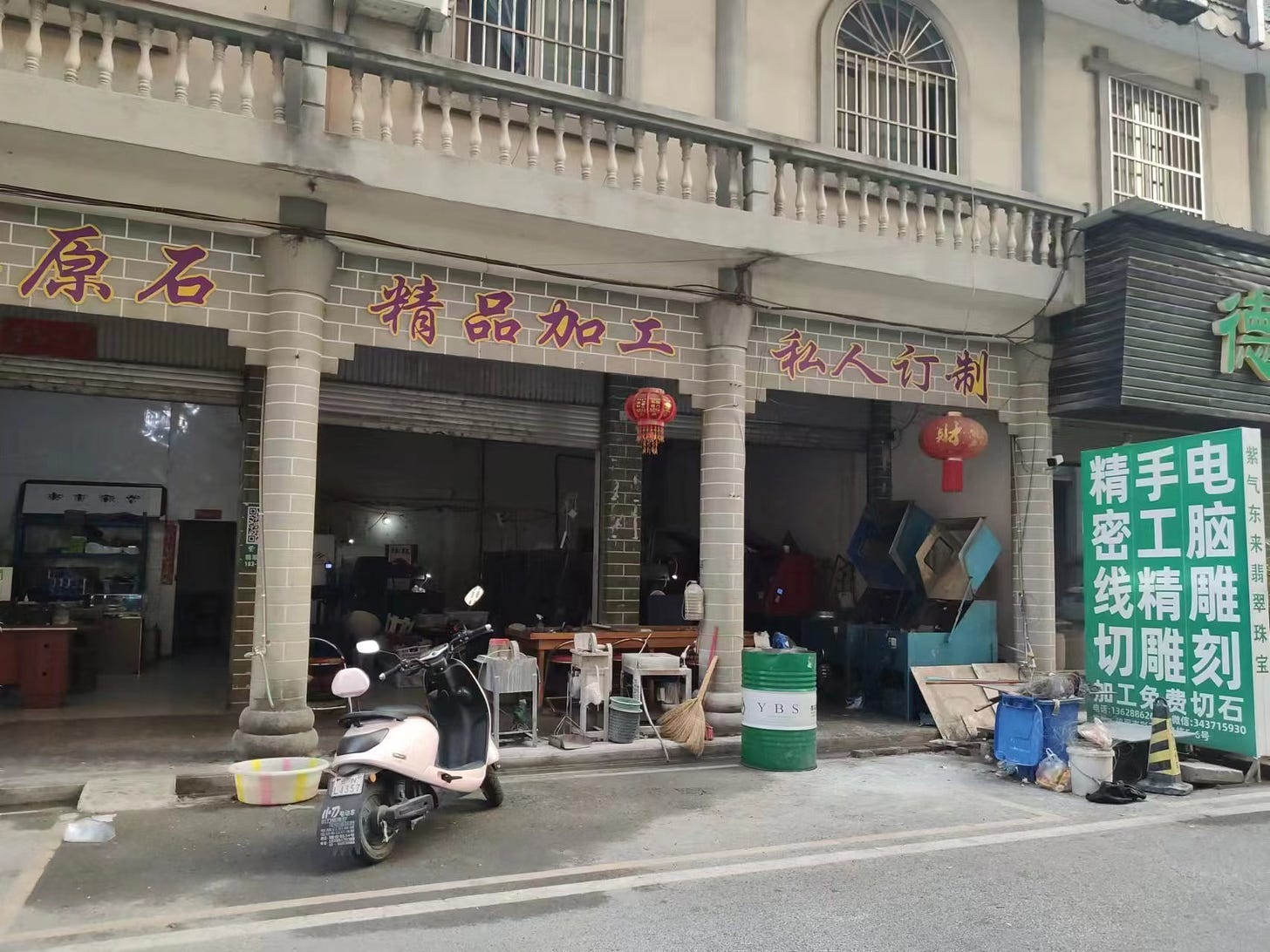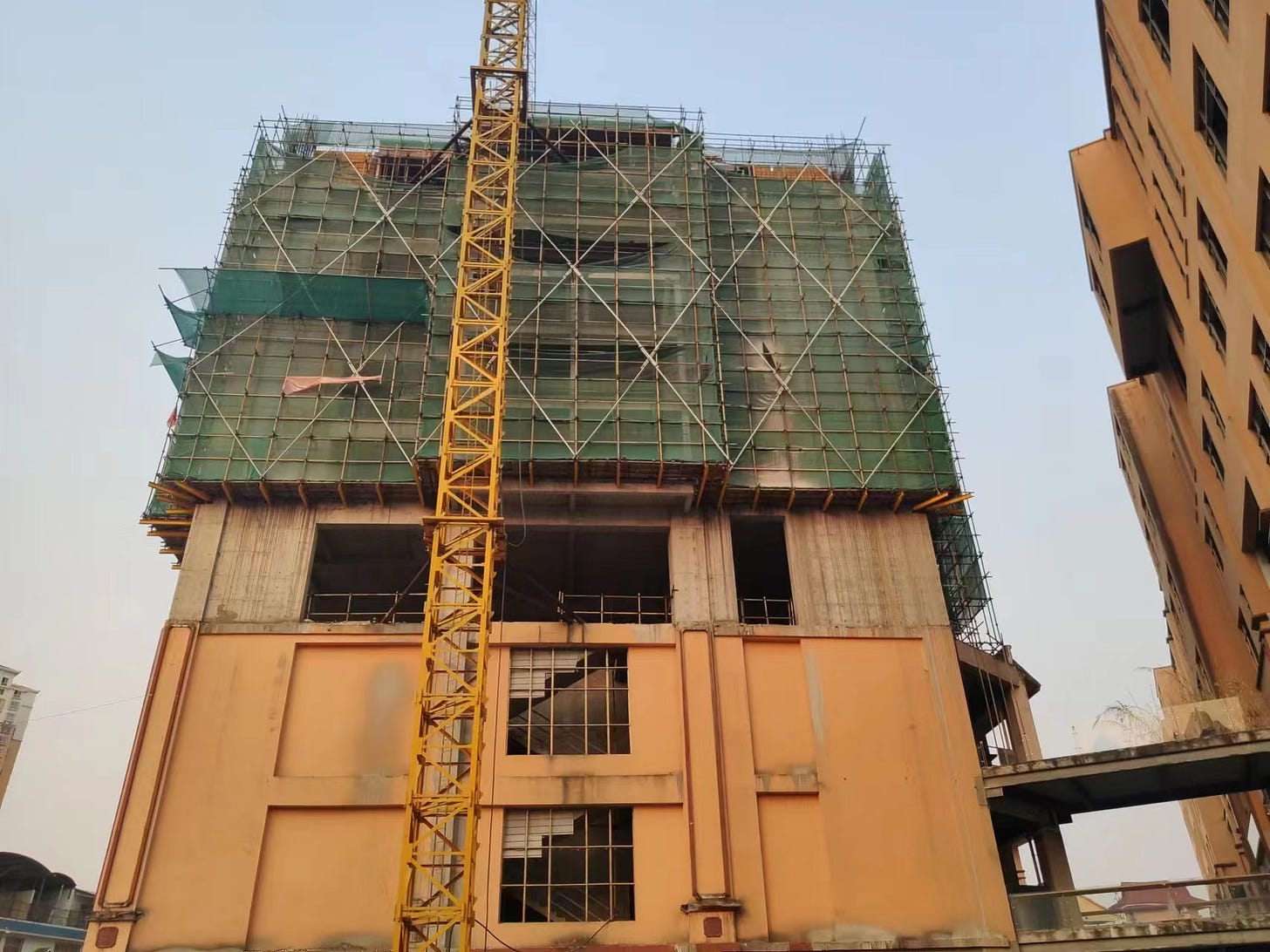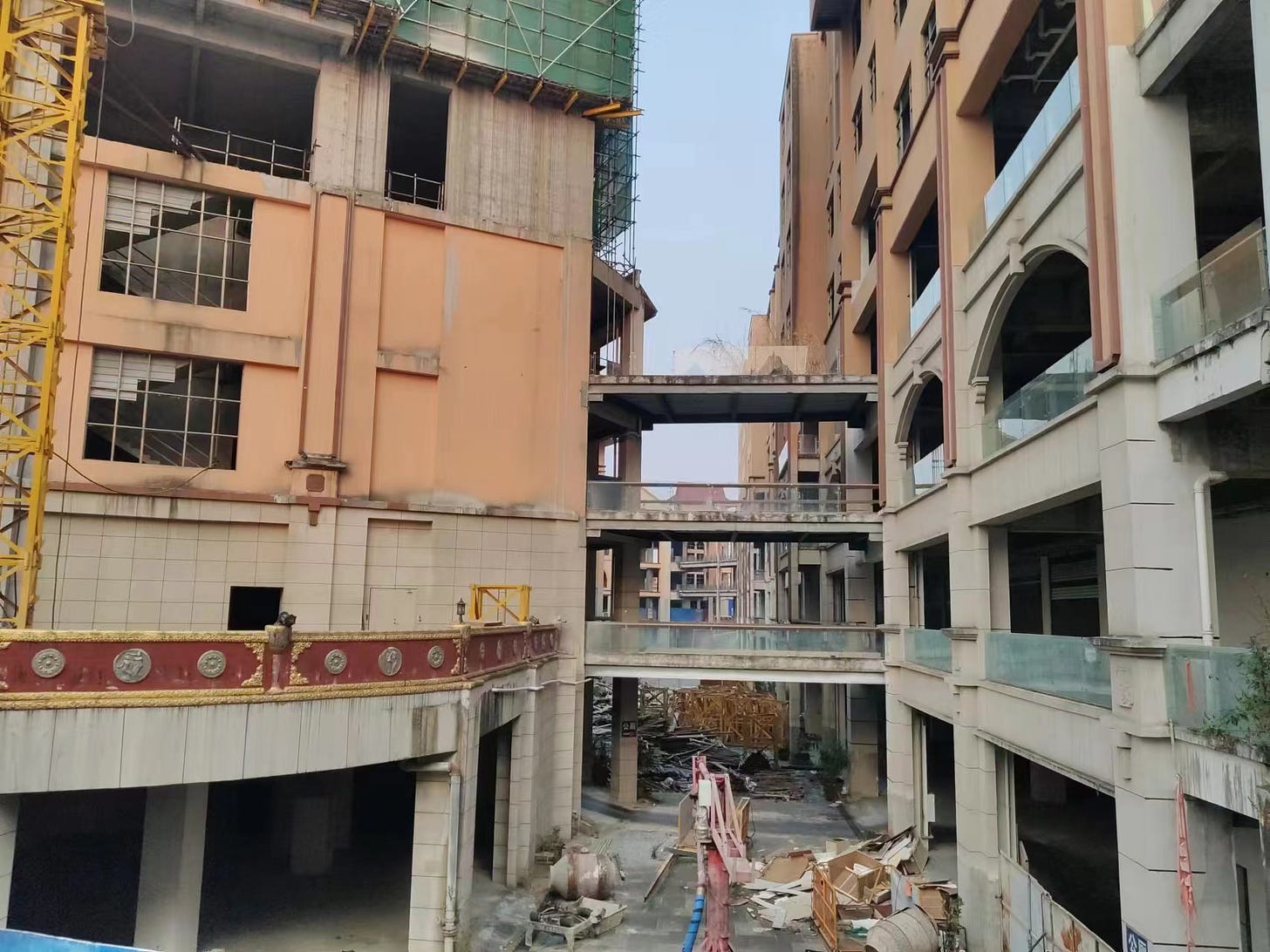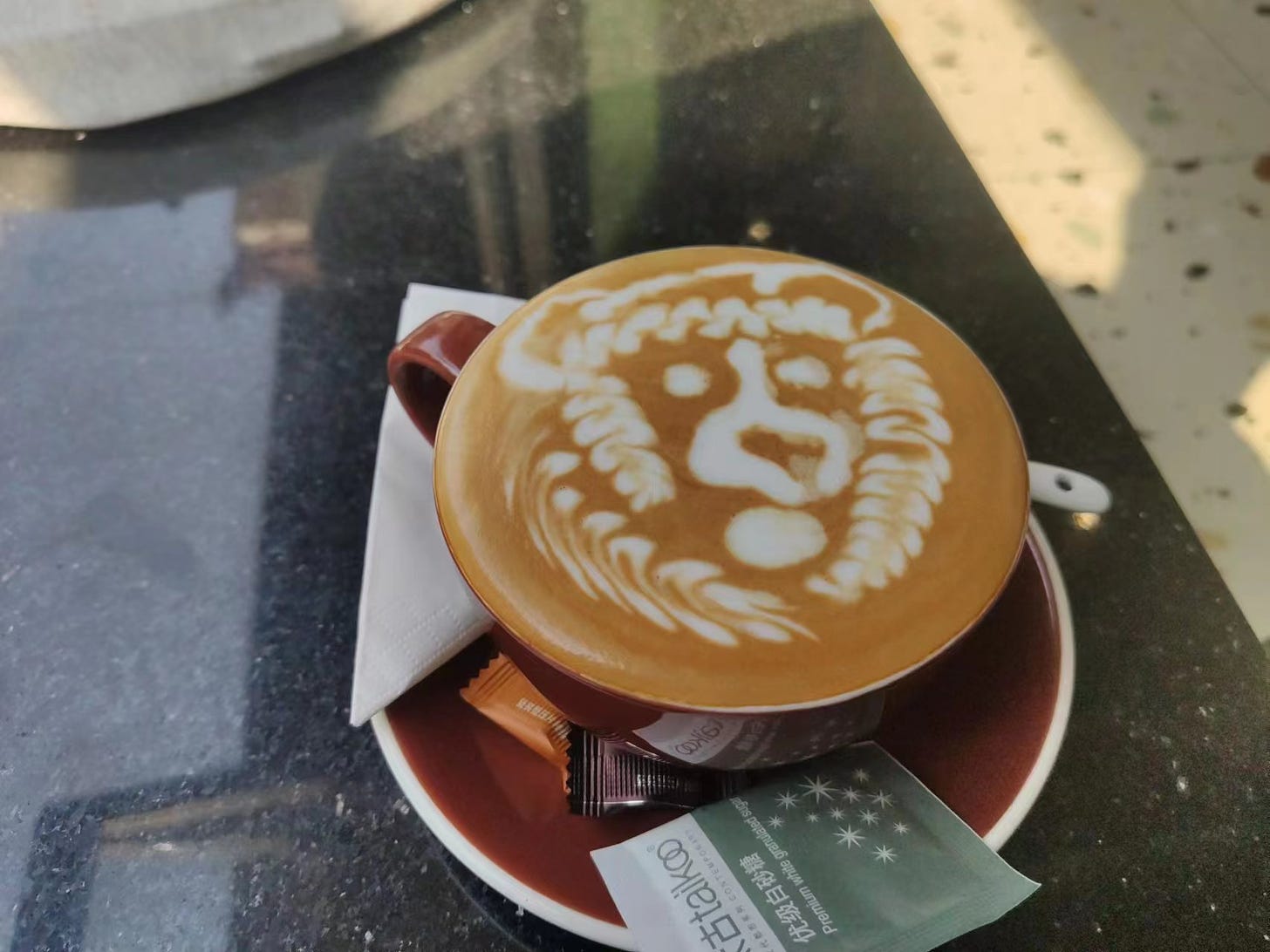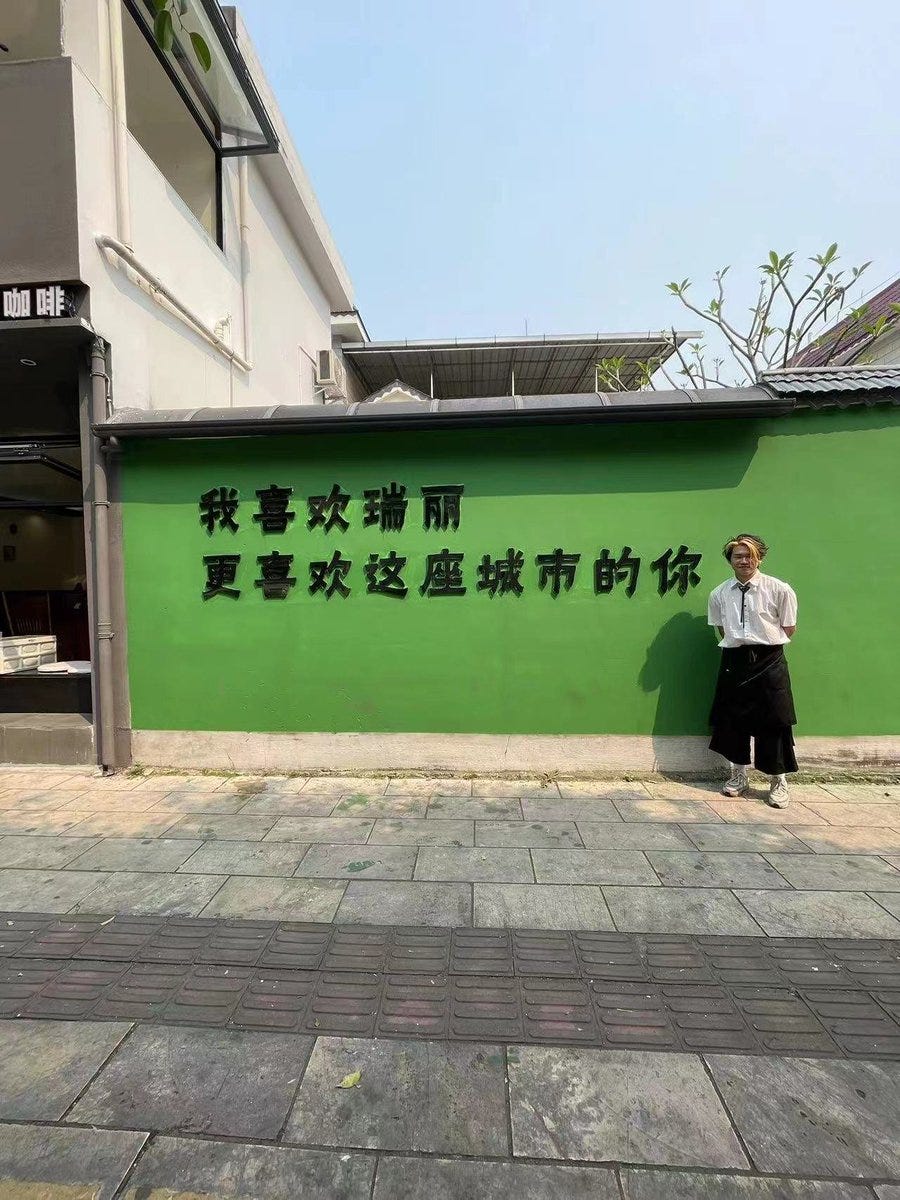Ruili: The most locked-down city in China
How are things going these days in China's unluckiest pandemic battleground?
As I mentioned in my previous essay on Chinese highways, I traveled Yunnan with friends in April 2023. From Shanghai, we flew directly into Mangshi, the capital of the Dehong Autonomous Region in southwestern Yunnan (yes I was surprised there was a direct flight too). From there, we rented a car and drove 90 minutes south to Ruili City. This is an essay edit of a Twitter thread originally posted on April 12, 2023.
Ruili is a small county-level city in the extreme southwest of Dehong Prefecture, which is already in the extreme southwest of Yunnan Province, which itself is in the extreme southwest of China. There are places that are more south, and there are places that are more west, but this is probably the most southwest place in China.
Ruili’s geographic administrative area juts into northern Myanmar’s Shan State, forming a kind of land peninsula, with Myanmar surrounding Ruili on three sides. This winding border follows the paths of the rivers by which it is demarcated, particularly the Ruili River (Shweli River in Burmese). About 65% of Ruili’s permanent population are ethnic minorities, most numerous being the Dai ethnicity, common throughout Southwest Yunnan (and Myanmar) but also including significant numbers of Jingpo, De’ang, and Lisu ethnicities.
Despite its small size and remote location, Ruili is fairly famous in China, thanks to its pillar industry (and claim to fame): the jade industry. China loves jade, and Ruili is the jade capital of China, with “Ruili jade” enjoying a name brand association as robust as “Haining leather”, “Danyang glasses”, or the newly-trendy “Zibo barbeque”. The beloved semi-precious mineral arrives as raw rocks from Myanmar, is polished, and cut in Ruili, and is then sold to the whole nation via both local markets and online distribution channels.
Back in 2021, Ruili’s official permanent population (hukou-holding Ruili residents) may have been only around 260,000, but thanks to the presence of jade workers from all over the country, as well as a significant Burmese expat population, many estimates placed Ruili’s unofficial population as high as 400,000-500,000. Of this, about 70,000 were employed by the jade trade, with a stunning 40,000 people of those employed as live-stream jade salespeople alone (according to The Paper). But of course that all changed during the pandemic.
Ruili had a LOT of lockdowns during zero-covid. Several people I talked to in Ruili told me it was 9. Some media reports counted as high as 12. No matter how many it was, or how they are counted, Ruili citizens spent something like 130 days fully confined to their homes across 2021 and 2022, on and off, usually for several weeks each time.
The problem was the nearby border with Myanmar. Early in 2021, some positive cases had sneaked across the border into Ruili and caused a super-spreader event. As a result, the local Party chief was sacked and the new guy seemed determined to prove it wouldn’t happen again under his watch, inspiring the seemingly-endless lockdowns every time there was a hint of a positive case. Each time, people were confined to their homes and it became hard or even impossible to leave the city without going through an outbound quarantine.
Over that year of lockdowns, hundreds of thousands of people left Ruili - perhaps as much 1/3rd of the pre-covid population, looking for work elsewhere. This was inferred by the reported statistics of how many people participated in the mass PCR testing events - the number of participating citizens shrank by hundreds of thousands from mid-2021 to mid-2022.
"Basically, if you weren't from Ruili, you would just leave" barista Mr. Xu told me, as he carefully coaxed my latte milk foam into the shape of a bear's head. "If you came to Ruili to work in jade, you can go elsewhere, like Guangzhou (Guangzhou also has a well-known jade industry). But the people who are from Ruili stayed here."
Xu is a local, of course, just 19 years old. He owns and runs this coffee shop he opened last year with a friend, one of the few coffee shops in town (although coffee beans are produced locally, they aren’t consumed much here yet). He lives behind the shop with his parents.
"It was hard during the lockdowns...we had a lot less variety of food. I ate so much rice and potatoes during that time. But it was ok for our shop...we could still open and do business via delivery, because I live at the shop. We got a lot of delivery orders during lockdowns...actually it was busier then than it is now."
As an aside, allow me to note that among all the cities and provinces in China that had lockdowns, Shanghai is the only case of which I am aware where the pandemic authorities made the bizarre and shortsighted decision to also lock down essential workers like delivery drivers, breaking the food supply chain.
Xu makes quite the visual impression - he's of the Lisu ethnicity (傈僳族) a Tibeto-Burman ethnic minority found in Yunnan, Sichuan, and Myanmar. There are about 900k Lisu in China. He has a dyed red-blonde streak in his bangs and wears a white button-up with a Prada bolo tie. He also has a number of freckles splayed across his face, some natural and some seemingly drawn on (I think). The day we visited, he had stickers on his cheeks under each eye. One was a plus sign, the other was a star. Baggy black pants and scuffed Nikes completed the ensemble.
The second time we visited his shop, he sat down with us to chat over a freshly brewed pot of his hand-poured Yunnan light roast. He speech conveys a curious contrast of sincerity and guilelessness, combined with beyond-his-years worldliness. He smiles easily but shyly.
He told us Ruili is a city much wealthier than its size would indicate, thanks to the jade trade. "We're just a small city, but you can even see some Lamborghinis and other luxury cars on the streets here...those are the people that got rich from jade. They have big villas. We used to have a saying: “you can get rich here doing anything” 随便做什么都能发财.
"Yes", I said. "I noticed the streets are clean and well maintained, and the urban greening is well done. I guess the city must have a big budget from collecting a lot of taxes from the jade industry, is that right?"
"The city used to have a lot of money" he says. "But they spent it all on pandemic control. Now the city doesn't have money anymore..."
It's not surprising to hear - Ruili must have been torching money to maintain those long lockdowns and do PCR tests, while cross-border trade was at standstill and the people who worked in jade had all fled the city.
In the border neighborhood of Jiegao, next to the land port into Myanmar, the streets that once bustled with wholesale goods shoppers are still completely a ghost town except for a gaggle of vendors directly at the exit of the immigration building, a large gold-peaked building.
We saw a a handful of buses with tourists coming to see the border and a trickle of people going across to Myanmar. Part of the street was blocked and we saw signs for an "International Duty-free Shopping Day" next week. But most of the other shops were closed, with cars parked up on the sidewalk. If you’ve seen news footage of endless rows of closed shops in Ruili, this is definitely where it was filmed.
But aside from that Jiegao neighborhood, we mostly saw signs of recovery, especially for non-jade businesses. The city felt busy-ish, but perhaps a bit too empty, like it had been built to accommodate more people than were currently living there. We saw "For Rent" signs in the windows of abandoned jade stops everywhere. I estimated about 1 in 3 jade-related businesses were still empty, but didn’t see so many empty storefronts for other kinds of commerce, just jade.
Driving around randomly on scooters that afternoon, we found a large unfinished shopping plaza with bare steel rebar poking into the sky, ragged green construction netting flapping forlornly in the breeze. Little bits of wind-blown plastic and cardboard formed small dusty piles against the bases of abandoned construction equipment.
I was curious what this site was, so we stopped at a nearby convenience store to buy ice cream and join two ladies chatting in the sun, hoping they’d tell us more. One was the owner of the store, a Ruili native. Her friend was a jade carver from Fujian who had just returned to Ruili after leaving town during the pandemic period.
They told us the site was planned to be a new commercial mall complete with a gem shopping street, but it had been stalled since 2021. I ask if it was now abandoned, but they they it’s actually supposed to continue construction soon. They were both optimistic about the recovery of Ruili's jade industry. "Things are basically back to normal I think" the jade carver said. However, she told me that the empty shopfronts in the Jiegao neighborhood are likely to stay empty for a while. “A lot of those stores were selling products illegally, without the correct paperwork and import license. Now the customs officials inspect that area very closely, so they won’t dare to re-open in that area. They’ll move their shop somewhere else in the city”.
I asked about Ruili’s lockdowns and we compared notes on our experience during the Shanghai lockdown (which they had also heard about). I told her we had come to visit and see how conditions were for ourselves after seeing the news about Ruili. The Fujian jade carver suddenly asked me an odd question:
"Hey, did the government give you any trouble, coming here to stay in Ruili? They are sensitive about foreigners coming to stay in border areas you know". She seemed concerned that our presence in town might be viewed suspiciously.
I told her we had seen no issues or trouble, although we did encounter police officers the day we checked into our hotel. The officers had told us that they had to do daily rounds, walking around the hotels close to the Myanmar border and doing spot checks on IDs. One had asked us the purpose of our visit to Ruili, and we said we were tourists, here to visit Ruili’s natural and cultural attractions. I showed them my ticket stub for the Moli Rainforest Park (which we had visited earlier) and in an instant, the cop completely switched his demeanor from that of a serious inquiring police officer presence to that of a Ruili local, excited to receive tourists. He said he had good memories of visiting the rainforest park with his classmates when he was a student, gave us a list of other places he recommended to visit, handed back my passport, and left with his colleague. “When he found out we were tourists, his local Ruili pride replaced his serious police officer identity,” I concluded my story. They both had a chuckle over that. We finished our ice cream and left the ladies chatting in the shadow of the unfinished mall.
This is a true story, and one that certain types of pessimistic China travelers might want to remember.
Going back to Xu at his coffee shop, he told us he’s planning to leave Ruili soon, but not for economic reasons…actually he's getting ready to start college in the fall. He has already enrolled at a college in Malaysia to study computer science. He still plans to return to Ruili after graduation though. "I want to see the world, but Ruili is still my home."
We ask who will take care of his coffee shop while he’s gone. “I’m not sure yet…maybe my friend or my older sister. Not my parents…it’s too hard for them”.
He asked us about our travel experiences, and his expression turned wistful as we rattled off cities and countries we’ve visited around the world. In his eyes, I saw the jealousy and eagerness to get the next phase of his life started. When the pandemic started, he was just 16…he’s lost a good few years of his youth. He turned up the inside of his collar to show us where he’d scribbled the phrase "Where is my next trip?" on his shirt.1
On the blank wall next to his coffee shop, he's put up a sign using a popular romantic phrase template: 我喜欢瑞丽, 更喜欢这座城市的你. It's somewhat awkward to turn into English, but it's roughly: "I like Ruili, but I like you (who is from this city) even more.” (It sounds more cute in Chinese).2 He says he put up the sign "to cheer people up" when everyone's spirits were low during the lockdowns.
We finished our coffees. It was the last day of our trip in Ruili, so we bid our farewells, wished Xu good luck with his studies, and set off for Tengchong, leaving Ruili behind to navigate an uncertain recovery to its pre-pandemic glory. But if enough of Ruili's citizens share Xu's energy and indefatigable spirit, I'm sure they'll do just fine.
I think this is a reference to a recent EP from Chinese hip-hop artist Capper?
It means the reason you like the city is because it has the person you love, a sentiment that can be swapped in the template for any city trying to build its tourist culture. It’s part of a recent trend where shops turn these phrases into fake road signs that you can pose for pictures with. The problem is that they look like real street signs, which has caused the authorities to crack down in some cities. Another common one is “我在XX很想你”, “Missing you in XX” (insert city name). It’s sort of like a Chinese version of “I Love NYC” t-shirts for tourists.



